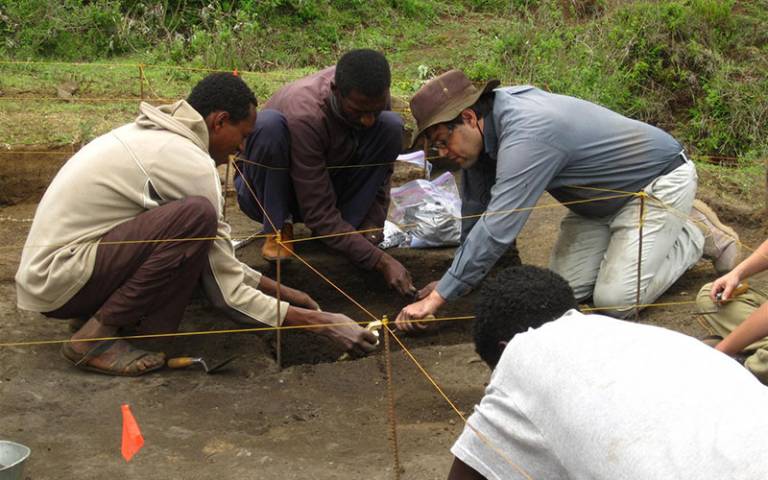Evolutionary dynamics of vegetative agriculture in the Ethiopian Highlands: integrating archaeobotanical and genomic science

A fundamental question in the evolution of domesticated plants is the extent to which genetic diversity and diversification is driven primarily by environment, culture or antiquity.
Almost half of food plants are vegetatively propagated including four of the ten most economically important species worldwide. Yet we know very little about vegetative crop history - for example, how long they have been cultivated, and
where - because vegetative tissues rarely preserve in the archaeological record.
In this NERC-funded project the team will develop new methods combining phytoliths (silica microfossils that exist inside most plant cells) with macro-botanical archaeological methods, as well integrating ethnohistoric, genomic and biogeographical information to reveal the evolutionary history of vegetative agriculture in Ethiopia.
Ethiopia is potentially Africa's most important centre of crop diversity, characterised by both the evolution and domestication of multiple vegetative species. The project will specifically focus on the major food security crop enset, or "Ethiopian false banana" (Ensete ventricosum), a tree-like perennial banana relative.
Enset supports some of the densest populations in sub-Saharan Africa and is the staple for 20 million people. It is cultivated over a wide elevational range and ecological gradients, exists at very high biomass densities and has a deep cultural association with multiple ethnic groups. As such enset offers an ideal model for studying long-term adaptation, diversification and interaction with culture.
This project will be of benefit to scholars and researchers of applied archaeology, environmental anthropology, ethnobotany, plant genomics, historical ecology, sustainability science and resilience theory, through its focus on
transdisciplinary approaches.

 Close
Close

